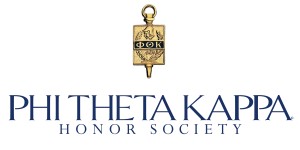Across the country, a growing pool of high-achieving students is choosing to start off in community college. And Dan Capogna, transfer admission coordinator at The College of Saint Rose, notices that they are just as likely to

Copyright © 2012 by Phi Theta Kappa. All rights reserved. None of the official Phi Theta Kappa logos and emblems may be reproduced, stored in a retrieval system, or transmitted, in any form or by any means, electronic, mechanical, photocopying, recording, or otherwise, without the prior written permission of Phi Theta Kappa. Phi Theta Kappa has registered the name, logo, and various titles herein with the U.S. Patent Office
start a conversation asking about the financial package as the academic offerings. For one thing, colleges near and far are interested in recruiting them. For another, they worry that private college is expensive.
“They don’t always know the full story,” he says, between recruiting trips downstate and in western Massachusetts. “Sometimes they can wind up paying less here than they do at a state school.”
If you are a motivated community college student who earns good grades, Capogna is prepared to make the case for transferring to The College of Saint Rose: Small class size, a warm and caring community, challenging academics. And, now, a new scholarship opportunity.
“We are THE school in the Capital Region to transfer to,” said Capogna, ‘05, who is himself a transfer success story. “We just need to let them know.”
Transfer students with a 3.0 GPA automatically qualify for a $5,000 scholarship for every year they are at Saint Rose. That rises to $7,500 with a GPA of 3.81, with varying amounts awarded for those with GPAs of between 3.0 and 3.81.
Now, the College has added another sweetener, an additional $3,000 scholarship for students who are members of the Phi Theta Kappa honor society, which recognizes the academic excellence of students at two-year colleges.
Capogna, who is on the road these days as much as he is on campus, believes the PTK scholarship will go a long way toward increasing the population of transfers, who now account for about a third of Saint Rose undergraduates. He also sees promise in the gifted students who excelled in high school with an eye toward using community college as a launch pad.
“The face of the typical community college student has changed over recent years,” he noted. “We have seen more and more high achieving high-schoolers enroll in community colleges as a conscious family financial decision. So when I’m visiting these schools, I make every effort to let students know that we offer a vibrant campus community, academically exhilarating programs and extremely competitive financial aid packages.”
At college fairs up and down the state and across the border, Capogna rarely hears the same story twice, an aspect of the job that he especially appreciates.
Transfer students are middle-aged individuals who left college many years ago to finish up, or have returned to school after switching fields. They are war veterans, freshmen who are overwhelmed by the large class size of their state school, or underwhelmed by their first taste of college life. They are generally anxious to charge ahead.
Not long ago, Capogna recruited a student who will come to Saint Rose in January from Long Island. She called him recently to say that she had lost her home to Hurricane Sandy. As a result, she told Capogna, she might need to leave Nassau Community College as she deals with rebuilding. He was moved by the fact that college mattered enough to prompt the phone call. He told her not to worry about her decision, that she would have a home at Saint Rose nonetheless.
One point he does not worry about is selling his alma mater. A one-time football scholarship recipient at Marist College, he contracted mononucleosis the summer before college and lost the scholarship. He enrolled at Hudson Valley Community College, worked doggedly and transferred to Saint Rose after a semester. He majored in communications, became a college recruiter in Massachusetts and could not resist the opportunity to return as the first-ever transfer coordinator.
“I’ve worked at plenty of other schools, and I can honestly tell you that I’ve never felt such a sense of warmth and community among faculty and staff as I have here,” he said. “In fact, while I was leaving campus after interviewing for the position that I’m in now, I remember getting butterflies in my stomach – just like I did after visiting Saint Rose for the first time as a student. It’s that feeling that I want every transfer student to encounter; I’d like all of them to be as lucky as I was.”
Thinking about transferring to Saint Rose? Transfer information can be found here.
Connect with transfer admissions counselor Dan Capogna on Twitter! @TransferDan (also available at admit@strose.edu)



Comments posted on this site are held in moderation until approved by a site administrator. Vulgar, profane, obscene, offensive terms or personal attacks will not be tolerated.